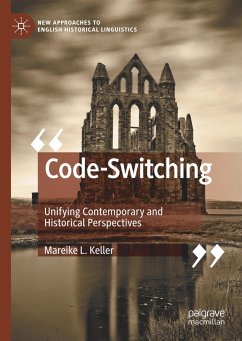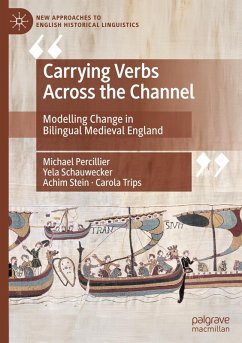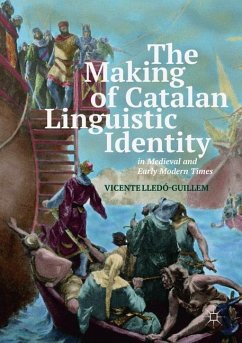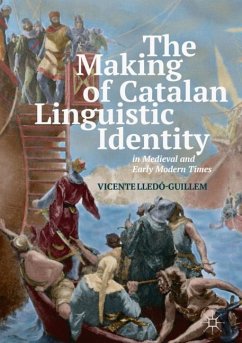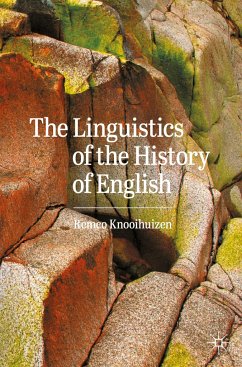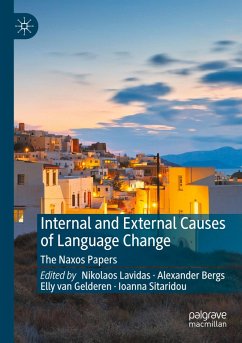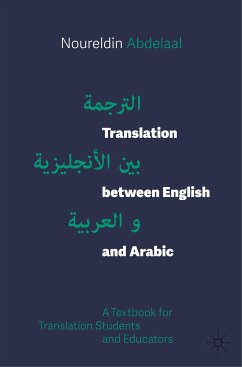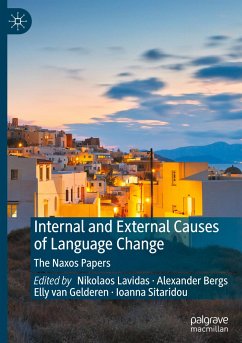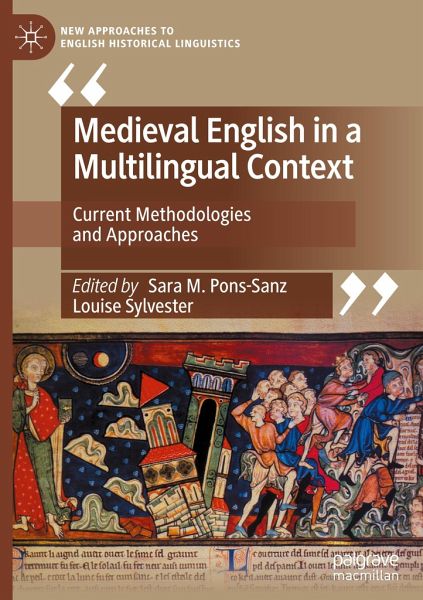
Medieval English in a Multilingual Context
Current Methodologies and Approaches
Herausgegeben: Pons-Sanz, Sara M.; Sylvester, Louise

PAYBACK Punkte
61 °P sammeln!
This edited book examines the multilingual culture of medieval England, exploring its impact on the development of English and its textual manifestations from a multi-disciplinary perspective. The book offers overviews of the state of the art of research and case studies on this subject in (sub)disciplines of linguistics including historical linguistics, onomastics, lexicology and lexicography, sociolinguistics, code-switching and language contact, and also includes contributions from literary and socio-cultural studies, material culture, and palaeography. The authors focus on the variety of l...
This edited book examines the multilingual culture of medieval England, exploring its impact on the development of English and its textual manifestations from a multi-disciplinary perspective. The book offers overviews of the state of the art of research and case studies on this subject in (sub)disciplines of linguistics including historical linguistics, onomastics, lexicology and lexicography, sociolinguistics, code-switching and language contact, and also includes contributions from literary and socio-cultural studies, material culture, and palaeography. The authors focus on the variety of languages in use in medieval Britain, including English, Old Norse, Norn, Dutch, Welsh, French, and Latin, making the argument that understanding the impact of medieval multilingualism on the development of English requires multidisiplinarity and the bringing together of different frameworks in linguistics and cultural studies toachieve more nuanced answers. This book will be of interest to academics and students of historical linguistics and medieval textual culture.






